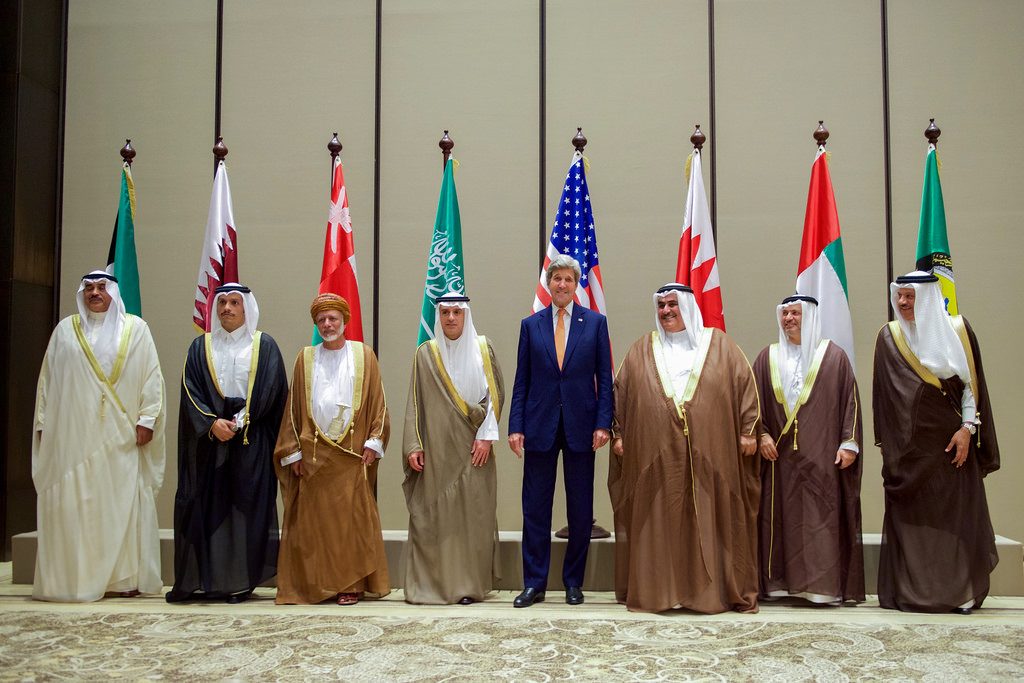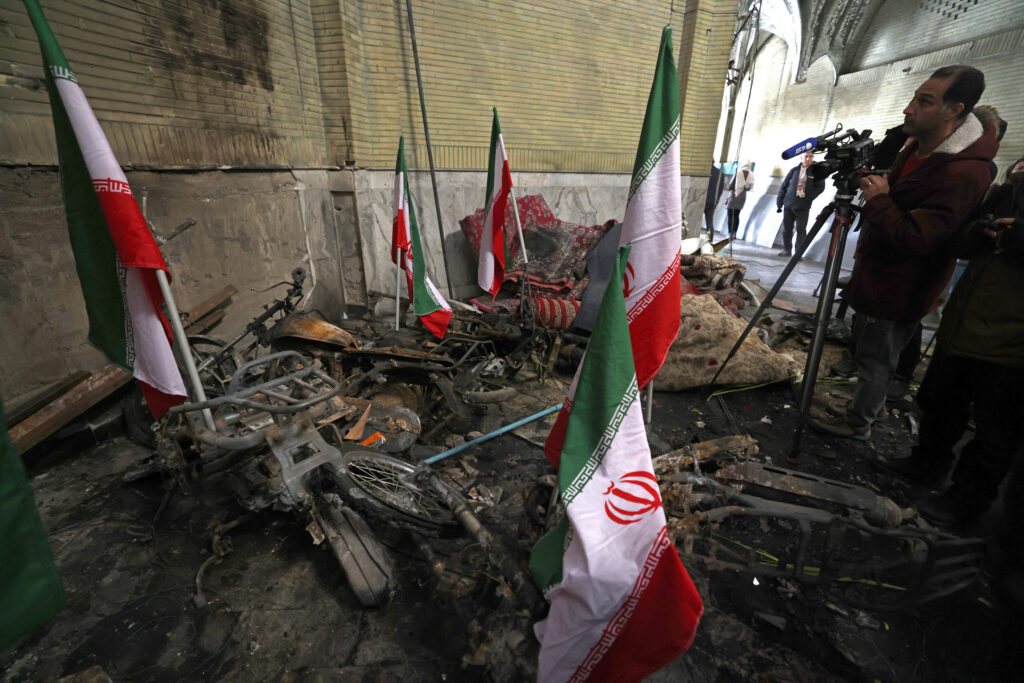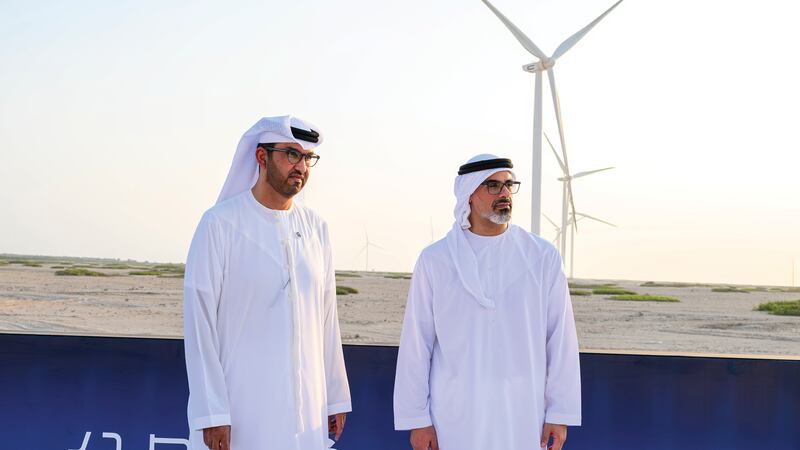By Gustav Boethius
Download Insight 38 Boethius HERE
This is the final MEI Insight in a series of four exploring the concept of demand security in the GCC. Structural instabilities in the global hydrocarbon markets constitute a serious threat to long-term demand security in the Gulf Cooperation Council’s (GCC) member states. The price levels of energy imports as well as the volatility of those prices are important factors for a country to consider when assessing the attractiveness of imported energy goods. Reliance on unstable energy markets generates domestic economic instabilities and greatly reduces the demand for imported energy. This article will explore how energy market instabilities affect the demand for the GCC member states’ hydrocarbon exports and the measures taken by the countries to stabilise these markets. It also argues that renewable energy technology markets are less likely to suffer from the structural flaws of the current oil and gas markets, and therefore present an attractive option to both investors and energy consumers.
The need for investment and trade markets
Like all major infrastructural enterprises, the energy sector is a capital-intensive industry. Even a small extraction and refining facility can incur costs to the order of hundreds of millions of US dollars, and the funding often needs to be obtained from investors. Raising these funds requires mechanisms for the purchase and sale of shares in companies and projects; investment markets are therefore an inescapable fact of the oil and gas industry. At a time when financial markets are blamed for fiscal mismanagement and economic crises, they are still a necessary evil required for a dynamic energy industry. The oil industry is, and always has been, inherently highly speculative; the returns of an investment are never guaranteed. Due to high levels of competition, various technical unknowns such as difficulties in hydrocarbon extraction and refining processes, and the political factors that affect oil politics in the producer regions, investments in the oil and gas sectors are high risk. Resultantly, investors are edgy and the market is volatile. In the short-term, instabilities in the hydrocarbon investment markets do not have a severe impact on the demand security of the GCC member states due to the general inertia of the infrastructural economics of the global energy trade. However, as alternative energy investment opportunities increase, these energy investment market instabilities are bound to harm the demand security of the GCC member states. There are some significant differences between the physical energy goods markets. Whereas the market for oil is today a global market, the physical properties of gas put economical constraints on its transportation and, by extension, the gas market’s geographical scope. Pipelines have emerged as the primary delivery vessel for gas from a producer to a market, which has limited competition. This and other transportation limits have divided the gas market into two main basins: the Atlantic and the Asian markets. The limited scope of the gas markets accounts for some of the relative stability of this market compared to that of oil. However, the emergence of Qatar as an international trading hub for liquefied natural gas is challenging this. Straddling the two market basins, Qatar’s role will serve to globalise the trade in gas. In the medium to long-term, the level of demand for oil and gas depends on the price. The oil price has become famous for its volatility, ranging from below US$20 per barrel in the late 1990s to its record high of US$147.27 per barrel in July 2008.[1] Even though such price fluctuations may appear extraordinary, the price of oil can reach such high levels because buyers are simply willing to pay. Energy is a good on which several sectors of an economy depend, endowing it with an extremely high political value. This extends to employment levels, food prices, general prices of other commodities in the economy and, ultimately, inflation. In countries where the political legitimacy of a leadership is derived from the continued delivery of economic performance, energy supply security plays a central role in decision-making ÔÇô China is here a notable example. Running out of energy is simply not an option. Spot and futures contracts are traded freely in the paper markets. Downstream speculation on energy prices is rife and has attracted much of the same market unease affecting the global stock markets. Due to the high level of exposure of energy consumers to oil and gas market risks, there is also a thriving market in energy derivatives to hedge against energy price impacts on businesses. In Singapore, the world’s third largest oil exchange, the trade in oil derivatives outweighs that of the trade in actual oil. The fact that the trade volume in physical energy goods can be comparable to the volume of risk management papers of those goods should serve as an indication of the risks involved in relying on the global energy markets. The structural flaws and the resultant volatility in the oil and gas markets constitute a serious threat to the GCC’s demand security. Further, there is little that the GCC member states can do to improve the structural design of the global energy goods markets. The GCC oil price balance While it is easy to understand that high prices are bad for energy consumers, the GCC member states’ view on oil and gas prices is more complex. The drawbacks of low energy prices to the GCC, which result in falling revenues, are obvious. The negative consequences of too high prices are more counter-intuitive, as high prices are perceived as being even worse than too low prices. High prices will shift consumer demand away from fossil fuels and attract investment in alternative energy sources, thereby eroding the GCC’s customer base. Decision makers in the GCC are acutely aware of this and are seeking to prolong energy consumers’ demand for their products. The Organisation of Petroleum Exporting Countries (OPEC), although at times a highly flawed cartel, has achieved a sufficient level of cooperation between its members to reach satisfactory price levels and to prevent severe price fluctuations. Reports of OPEC officials saying that they are comfortable with the current oil prices, demonstrate this point.
The great stabiliser
Unable to mend the flaws in the global energy markets, the GCC member states are instead attempting to ameliorate the symptoms. Out of the GCC member states, it is Saudi Arabia that has taken on the role as the great stabiliser of the energy markets. The bulk of OPEC’s spare refining capacity lies within Saudi Arabia’s borders and acts as a massive buffer to supply fluctuations. When Libyan oil production dropped with the outbreak of civil conflict earlier this year, the Saudi announcement that it would use its spare capacity demonstrated the country’s role as an oil market stabiliser. It is notable that Saudi Arabia essentially had a spare Libya within its borders in terms of production capacity. As refining facilities are extremely expensive and must be used continuously to maximise profit, spare capacity policies are very unpopular with investors. However, spare capacity is viewed as a worthwhile investment in order to pacify the energy markets and to ensure the GCC’s demand security. In addition to spare capacity, the GCC member states employ other means of preventing energy market fluctuations. Due to the volatility of the energy markets, a major concern is political instability, popular unrest and terrorism in the region. Considerable efforts have been, and still are, made to reassure investors and goods traders that the GCC member states are reliable oil and gas exporters, and the security sectors in these countries provide this reassurance. There is no question that the GCC member states all possess formidable armed forces, police and intelligence agencies. These instruments are central to the region’s attractiveness as an oil and gas exporter and constitute an essential political and economic tool in their respective countries. Moreover, a plethora of security companies, contractors and hired consultants are working around the clock to provide safety for the world’s largest energy industries and to allay fears of the consequences of political and social instability in the region. They do so rather successfully. The question of the GCC member states actual stability is another matter entirely. However, in the politics and economics of the hydrocarbon markets, the way things look is more important than what they actually are, and the GCC member states have been very successful in projecting an image of stability and reliability in order to secure the demand for their exports. Although the GCC member states are able to influence the global energy markets, the markets often have a life of their own. Investor fears regarding fuel shortages and political developments in the energy exporting regions are always going to be factors that influence the hydrocarbon markets. In particular, the unease about the recent uprisings across the Middle East is likely to linger for some time, and decision makers in the GCC will have to play their cards right in order to calm down the markets.
The appeal of a renewable energy market
As the trade in renewable energy goods grows, so will the size and span of the renewable energy market. The question to consider, then, is whether or not an equally unstable market would emerge if renewable energies had a dominant energy market position. Even in this sector, the trade in investment papers is today flourishing. However, there are three major differences between the trade in fossil fuels and the renewable energy market that need to be emphasised. First, renewable energy trade is structurally simpler, as no commodities apart from the installations themselves are traded. The energy is generated on the spot. Secondly, the renewable energy market is flexible, with greater opportunities for smaller, independent producers to phase into the energy markets using smaller scale investments. With its bulky infrastructural requirements, this is an advantage the hydrocarbon industry lacks. Finally, there are, at least today, fewer political factors involved in the renewable energy trade than in that of oil and gas, removing a major factor of instability from the renewable energy market equation. This makes the general dynamics of the renewable energy trade more attractive than those of the trade in oil and gas. Ultimately, the success of either market narrows down to how attractive they are for investors and traders. Some market actors may stand to benefit from volatile energy markets. However, the majority of investors are likely to seek stable investment opportunities with predictable dividends, just as energy consumers will seek out reliable and affordable energy supplies. With the threat of higher energy prices in times of political unrest in the Middle East, the thought of relying on a more predictable energy market is an appealing prospect. Therefore, the structural flaws of the hydrocarbon markets and the relative advantages of the trade in renewable energy present a serious threat to the GCC’s demand security.
Gustav Boethius is a Researcher at the Middle East Institute. He is currently investigating the impact of the unrest in the Middle East on ASEAN’s energy security. Gustav holds an MSc in Strategic Studies from the S. Rajaratnam School of International Studies (RSIS) and an MSc in Chemical Physics from the University of Edinburgh. His research interests include the economic and foreign policies of the Gulf States and non-traditional security with an emphasis on energy security and climate change.
[1] The price of a barrel of West Texas Intermediate at the New York Mercantile Exchange.





